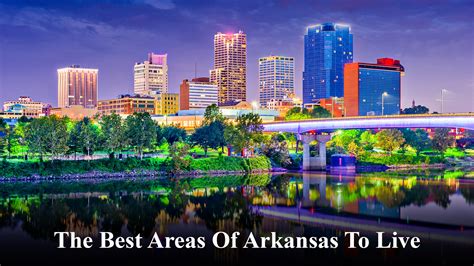Arkansas, known for its natural beauty, vibrant cities, and rich history, offers a unique blend of urban and rural living. With its affordable cost of living, thriving job market, and welcoming communities, the state attracts individuals and families looking for a high quality of life. However, it’s essential to consider both the pros and cons before deciding if Arkansas aligns with your lifestyle and aspirations.

Pros of Living in Arkansas
1. Affordable Cost of Living: Arkansas boasts one of the lowest costs of living in the nation. According to the Council for Community and Economic Research, Arkansas ranks among the top ten states for affordability. Housing costs are particularly reasonable, with a median home price of $165,000, significantly below the national average.
2. Strong Job Market: Arkansas’s economy has been steadily growing, fueled by industries such as manufacturing, agriculture, and tourism. The state’s unemployment rate of 3.8% is lower than the national average, indicating a robust job market. Major employers in the state include Tyson Foods, J.B. Hunt Transport Services, and the University of Arkansas for Medical Sciences.
3. Welcoming Communities: Arkansans are renowned for their hospitality and friendliness. Small towns and cities offer a sense of community and connection, while larger cities like Little Rock and Fayetteville provide cultural amenities and entertainment options. The state’s diversity contributes to a welcoming atmosphere for people from all backgrounds.
4. Natural Beauty: Arkansas is home to stunning natural landscapes, including the Ozark Mountains, the Ouachita Mountains, and the Arkansas River Valley. The state’s vast wilderness areas offer opportunities for hiking, camping, fishing, and other outdoor activities. Visitors and residents alike enjoy exploring the natural wonders of the state.
5. Low Crime Rate: Arkansas has a relatively low crime rate compared to other states. According to the FBI’s Uniform Crime Reporting Program, the state’s violent crime rate is 37% lower than the national average. This makes Arkansas a safe place to live and raise a family.
Cons of Living in Arkansas
1. Limited Public Transportation: Public transportation options in Arkansas are limited, especially outside of major cities. This can be a challenge for individuals who do not own a car or prefer to use public transit.
2. Educational Challenges: Arkansas faces some educational challenges, with the state consistently ranking below the national average in terms of student achievement. However, efforts are being made to improve the quality of education at all levels.
3. Lack of Diversity: Arkansas is a relatively homogeneous state, with a majority white population. This lack of diversity can be a consideration for individuals who value racial and ethnic diversity.
4. Climate: Arkansas experiences hot, humid summers and cold, wet winters. The state is also prone to severe weather events such as tornadoes and floods. These weather conditions can impact both daily life and property damage.
5. Limited Cultural Amenities: While Arkansas offers some cultural amenities, they can be limited compared to larger cities. Residents may need to travel to neighboring states or urban centers for a broader range of cultural experiences.
Tables for Further Analysis
Table 1: Cost of Living Comparison
| Category | Arkansas | National Average |
|---|---|---|
| Median Home Price | $165,000 | $297,700 |
| Median Rent | $896 | $1,182 |
| Groceries | 10% below national average | – |
| Utilities | 15% below national average | – |
| Transportation | 12% below national average | – |
Table 2: Job Market Statistics
| Indicator | Arkansas | National Average |
|---|---|---|
| Unemployment Rate | 3.8% | 4.2% |
| Job Growth | 1.5% | 2.2% |
| Median Household Income | $57,392 | $65,712 |
Table 3: Crime Rates
| Crime Type | Arkansas | National Average |
|---|---|---|
| Violent Crime Rate | 37% lower | – |
| Property Crime Rate | 25% lower | – |
Table 4: Educational Rankings
| Indicator | Arkansas | National Average |
|---|---|---|
| NAEP Math Proficiency (4th Grade) | 34% | 40% |
| NAEP Reading Proficiency (4th Grade) | 36% | 40% |
| High School Graduation Rate | 83% | 85% |
Conclusion
Deciding whether Arkansas is a good place to live depends on individual needs, priorities, and aspirations. The state offers a number of advantages, including an affordable cost of living, a strong job market, welcoming communities, natural beauty, and a low crime rate. However, it also faces challenges in terms of public transportation, educational achievement, diversity, climate, and cultural amenities.
Prospective residents should carefully consider these factors and conduct further research to determine if Arkansas aligns with their values and lifestyle. By weighing the pros and cons, individuals can make an informed decision about whether Arkansas is the right place for them to call home.
